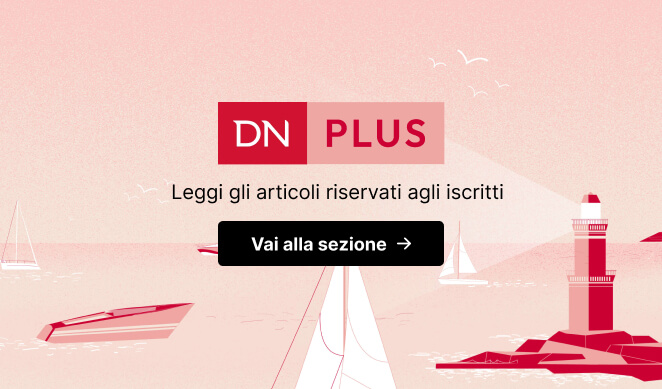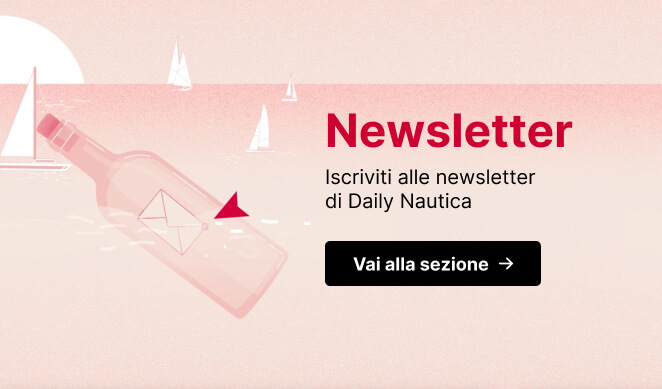Understanding the marine weather
Understanding the weather at sea is a subject that fascinates and interests all sailors, boaters and professionals. Over the last twenty years, progress in the marine meteorology sector has been extraordinary.
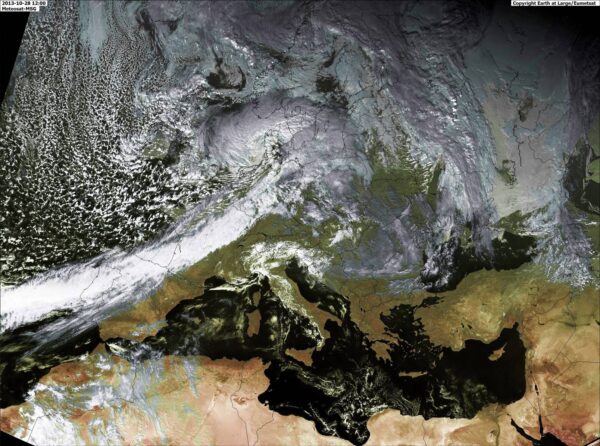
Understanding the marine weather
Understanding the weather at sea is a subject that fascinates and interests all sailors, boaters and professionals. Over the last twenty years, progress in the marine meteorology sector has been extraordinary.
Understanding the weather at sea is a subject that fascinates and interests all sailors, boaters and professionals. Over the last twenty years, progress in the marine meteorology sector has been extraordinary. Modern telecommunication systems, the power of computers, the improved reliability of meteorological models, images from satellites, radar and above all the Internet, have made information (that was once reserved only for meteorologists) accessible to all. In these articles, which we will gradually develop in coordination with DailyNautica, we wish to share with you the experience acquired over the years by the Navimeteo Team in our everyday operations.
Navimeteo is a private company based in Italy in the port of Chiavari and in England in Cornwall at Falmouth, which for over 30 years has been offering its services to the sectors of yachting, cruise ships, ports and marinas and the various other operators of the maritime industry.
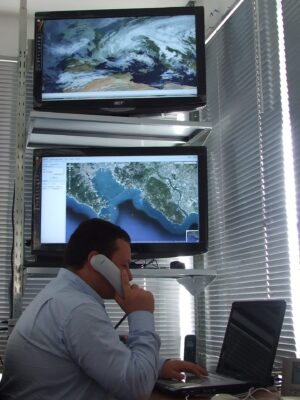
Danny Vitri one of the Marine Weather Forecasters at Navimeteo.
In the past, he worked for several years at the historic “OceanRoute Weather Center” in Aberdeen (Navimeteo Archive)
From the beginning, it should be emphasized that no private centre in the world could operate efficiently without the extraordinary dataflow that the various National and International Centers have been able to develop over time. I refer by way of example to NOAA (National Oceanic & Atmospheric Administration), the US center that also looks at the hurricane risk, the Met Office in England, Météo France, the Meteorological Service of the Aeronautica Militare in Italy and the numerous Centers that in the world cooperate within the WMO (World Meteorological Organization). Without these national sources, no private center would be able to operate.
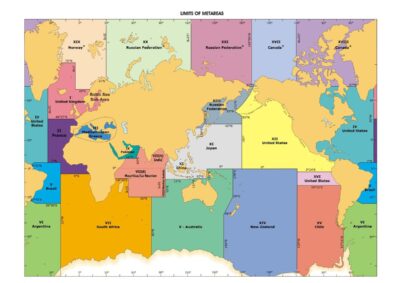
The zones of global coverage – GMDSS Met Areas system
In compliance with this principle, the added value of a center like Navimeteo lies in knowing the mariners’ needs in order to provide them with customized services. There is a substantial difference between sailing or motor sailing, on a boat or a large ship, on a displacement or fast motorboat, close to the coast or in the open sea and the knowledge of all this allows the private center to interact directly with the user of the service.
In this direction, we will try to be very essential, using simple words, even when we are going to analyze technical and interesting topics since marine meteorology is a science to which one can become passionate. As time goes on, we will become familiar with the rules that we like to consider a bit like the simple letters of the weather alphabet. Depending on the situation, they will compose the different words and situations of the weather at sea.
The study of meteorology is in fact based on rock-solid rules, but at the same time, since it studies the motion of fluids, it is subject to innumerable variables and it is for this reason that, even today, forecasts can be wrong.
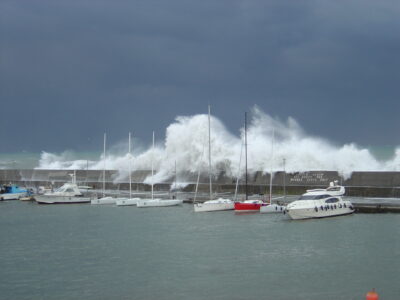
Storm from Libeccio in Chiavari, (Gianfranco Meggiorin Archive)
The Mediterranean and the Ocean
Contrary to what many think, navigation in the Mediterranean is sometimes more complex from a weather point of view than in the Atlantic Ocean. The winds of the Mediterranean, due to the orographic reliefs, the straits, the islands, and the mountains are subject to turbulence capable of modifying their dominant flow. This makes the forecast more complex and difficult especially near the coasts. In the open sea and on the oceanic horizons, the weather models from which the forecasts are elaborated are more precise and reliable and the variables less unpredictable.
Together we will have the opportunity to explore these issues, strictly connected to the safety of navigation, with the hope that this Navimeteo section on Daily Nautica can contribute on making marine meteorology easier and more useful.
Understanding the weather at sea makes sailing horizons wider and safer.
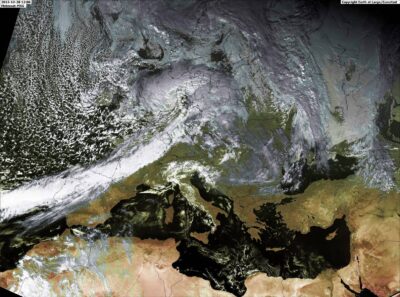
The Mediterranean and the arrival of the cold front seen by the Meteosat satellite
Gianfranco Meggiorin (www.navimeteo.com)


